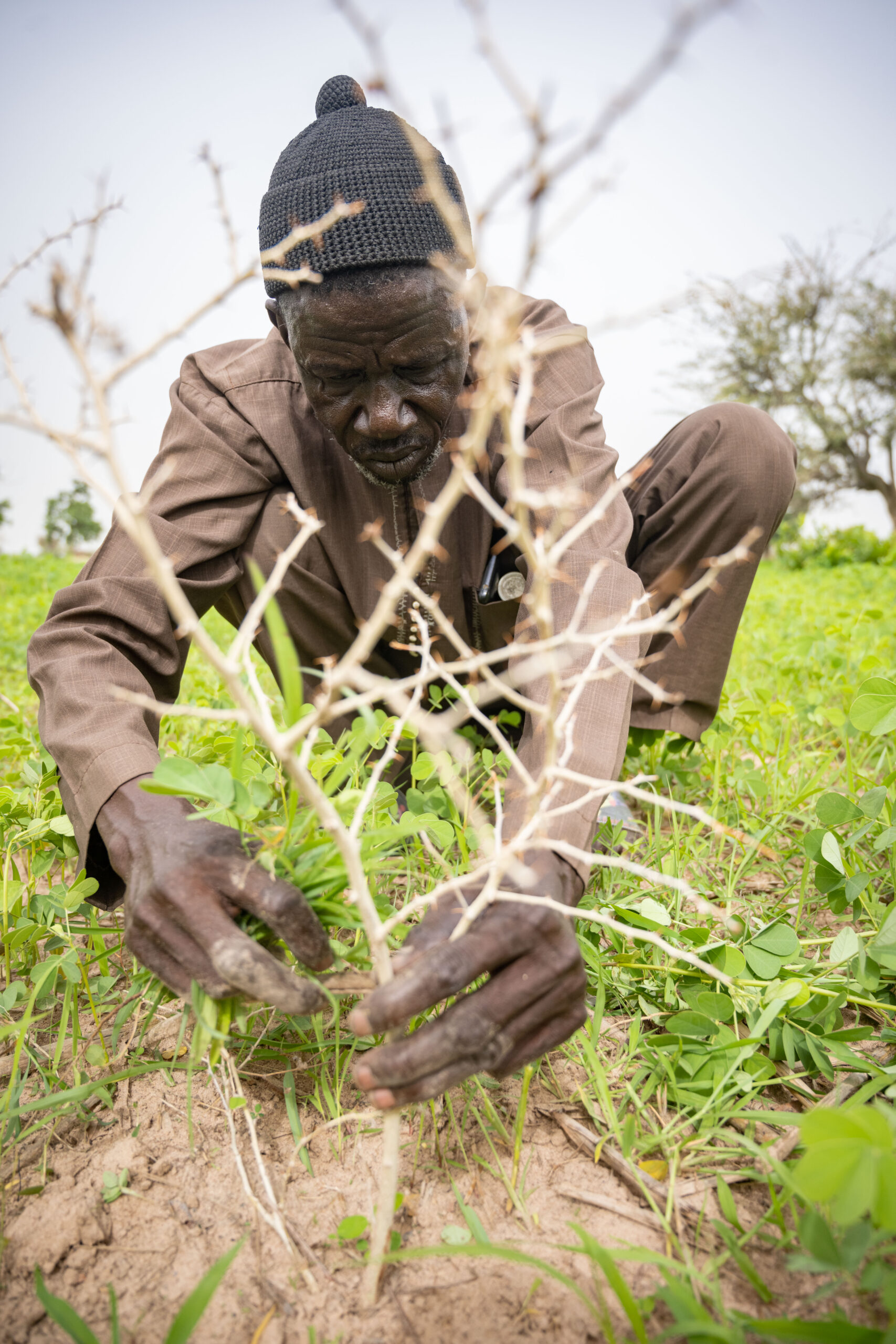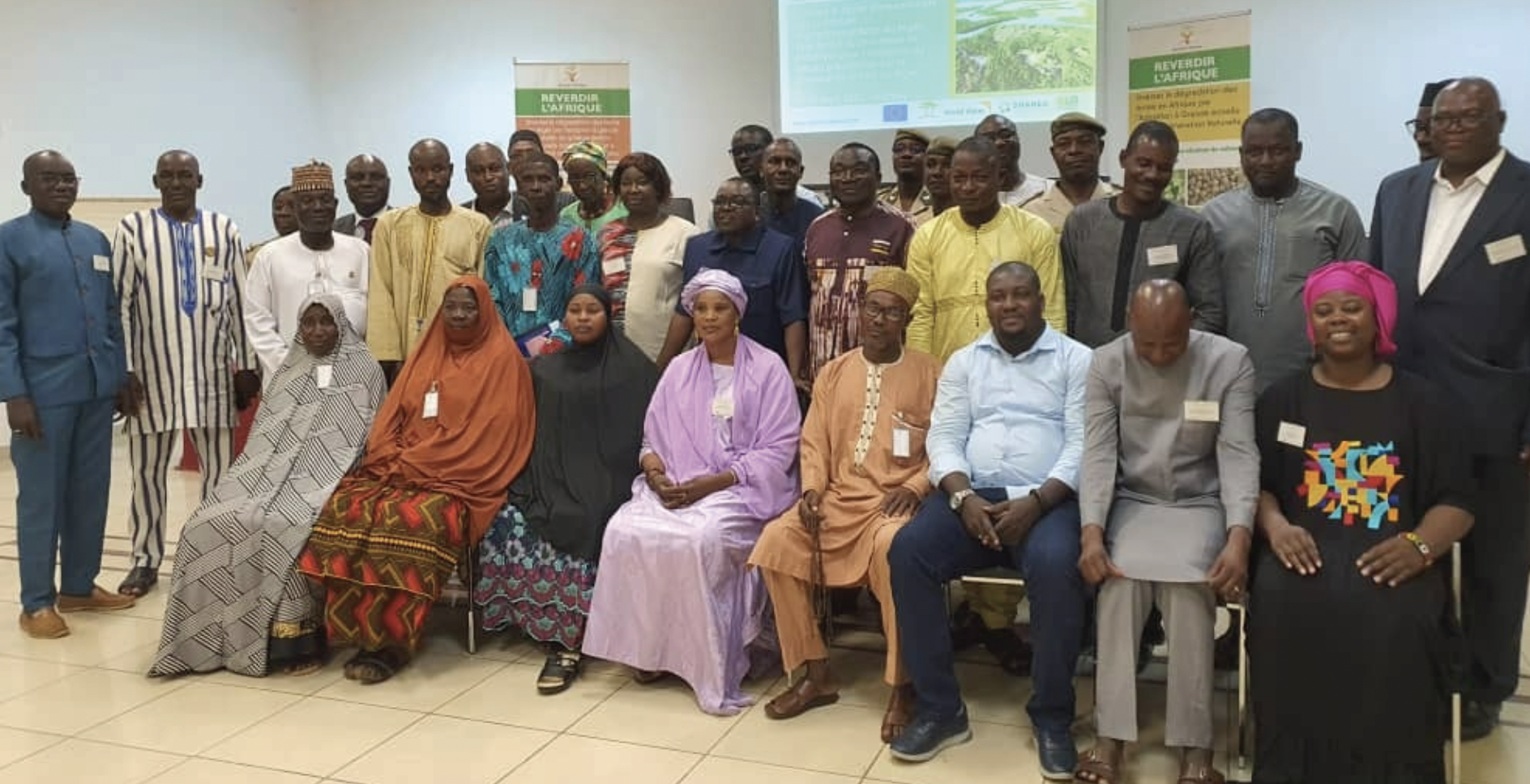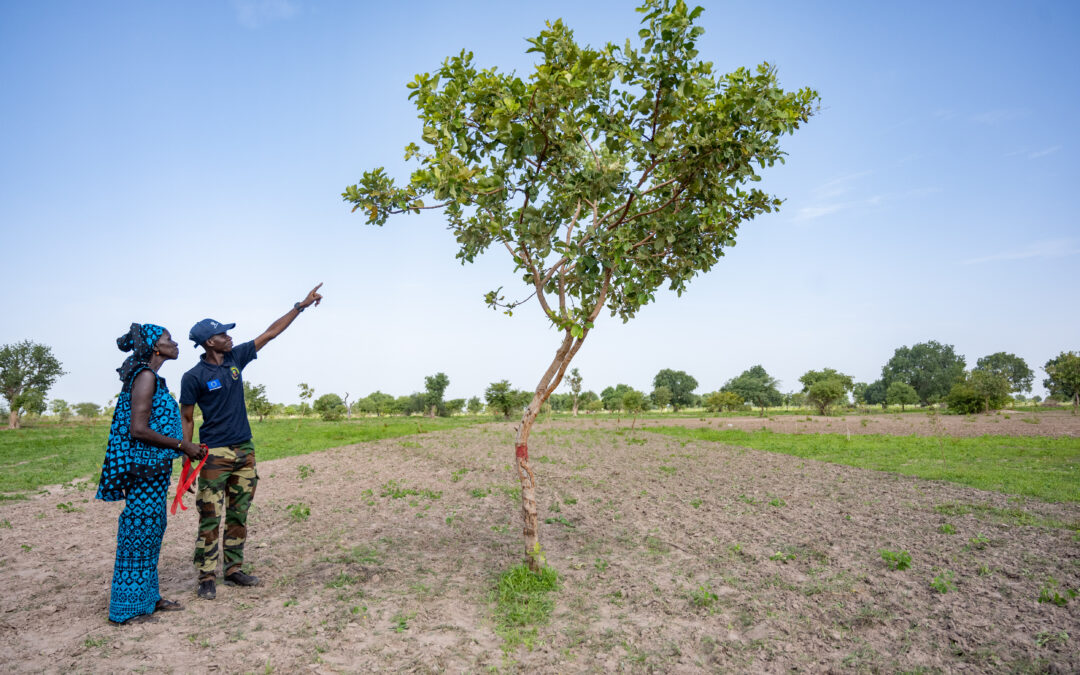Tree use rights have been raised as a critical incentive to scaling out landscape restoration with trees in many countries in the Sahel. A question has emerged around who can use trees on farms and if the current policies reward those land managers who regenerate and grow trees on their land. Here we bring together information from cross-learning visits and studies to look at this question in Mali, Niger and Senegal.
‘Trees are not all the same’ Assessing the policy and regulatory barriers to the upscaling of Farmer Managed Natural Regeneration (FMNR) in Senegal
“The law should treat the trees on our farm differently than those inside the forest because trees are not all the same.” This quote from Faye, a Senegalese farmer encapsulates a major policy and regulatory challenge related to tree use, and ownership rights in Senegal, and the Sahel at large. Although ecosystem restoration is high on the global and national agendas, and technical solutions such as Farmer Managed Natural Regeneration (FMNR) are promoted, knowledge gaps remain in the regulations regarding the rights and ownership of restored ecosystems and how these influence farmers incentives for land restoration.
This article contributes to filling these gaps through i) an analysis of the policy and regulatory schemes that govern agroforestry in Senegal, and ii) an assessment of key stakeholders’ perceptions regarding these provisions and the implications for the upscaling of FMNR.
Semi-structured interviews were used to collect data from 114 actors including 24 foresters, 44 field animators (local trainers) and 44 farmers in Kaffrine, Kaolack and Fatick regions of Senegal.
The results show that tree rights and use procedures are determined by the Forestry Code and vary according to the status and location of the tree. However, the Forestry Code originally designed to regulate forests was found to not be appropriate for the management of agroforestry systems and creates barriers to the adoption of practices like FMNR by farmers. Contrasting perceptions and potential solutions emerged. While the field animators and farmers found the tree use procedures burdensome and constraining for the practice of FMNR, the foresters in majority founds them not burdensome and appropriate for environmental protection. As solutions, animators and foresters suggest farmers’ sensitization, capacity building, and rewards whereas the farmers call for an easing of the tree use procedures and the reduction or exemption of taxes and permit fees.
Our results recommend the formulation of a specific agroforestry policy, based on legal provisions that are appropriate to the management of trees on farm. In addition, the government could issue a new decree regulating the practice of FMNR and the management of trees in agroforestry systems. This decree could:
- Recognise farms as specific entities dedicated to agricultural production with integrated trees (agroforestry) distinct from the forest dedicated to forestry production or protection.
- Recognise and define a specific status for the trees on farm that is distinct from the status of trees in the forest.
- Attribute the management of trees on farm to their own regulations and a specific agroforestry development policy, distinct from the trees inside the forest, which are subject to the management regimes of the Forestry Code.
These findings have implications for how we advocate for policy shifts to support landscape restoration that is beneficial to the local land managers.
You can read the full journal article here.

Peer to peer learning is an effective approach to policy advocacy as well as behavioural and practice shifts toward meaningful transformation in natural resources management. In the framework of the Regreening Africa programme, the component SHARED (Stakeholder Approach for Risk-Informed and Evidence-Based Decision-Making) of World Agroforestry (ICRAF) co-organised with partners from Oxfam Mali, Sahel Eco, and World Vision Niger a cross-country policy learning visit to Niger from 12-17 September 2022.
The overall objective of this cross-country policy learning visit that gathered 30 stakeholders was to enable Mali and Senegal decision-makers to learn from Niger’s experience in advocacy and policy influencing related to agroforestry, land restoration, rights and procedures for tree uses. Particularly, the objective was to learn from the multi-actor processes that had led to the adoption of the presidential decree regulating the practice and benefit sharing of Assisted Natural Regeneration (ANR) or Farmer Managed Natural Regeneration (FMNR) in Niger (to read more on this topic click here).
The specific objectives of the visit were to:
- Strengthen dialogue through exchange of experiences between country stakeholders.
- Explore opportunities for policy influence in Mali and Senegal including the relevance of initiating a similar advocacy process as was completed in Niger in favour of land restoration, agroforestry, and the practice of ANR.
- Develop an operational plan for the advocacy process by mapping the expected changes, the key actors to be included, their respective roles, the means required, and an implementation schedule.
Following the presentation of country cases from Niger, Mali and Senegal, thematic and country based group work, and exchanges of experiences between participants, the following key messages, and recommendations were made.
Key messages from the cross-country policy learning visit:
- Higher level political will and commitment was critical for the decree to be made in Niger. In Senegal and Mali, there is a favourable political environment that could support a similar advocacy process in the country.
- Meaningful, and sustainable policy reforms happen when the need for change is expressed from the bottom and meets support from the top.
- Policy reforms in Mali and Senegal should improve the status of ANR and the socio-economic value of the trees for the farmers.
- To be successful, game changing and appealing to policy makers, the advocacy should be built upon robust evidence of gaps in the existing policies and regulations and their implementation.
Key recommendations from the cross-country policy learning visit:
- Initiate an advocacy in Mali and in Senegal for a decree or un arrêté regulating the practice of ANR, it’s governance and benefit sharing schemes. Political opportunity windows exist in both countries.
- Build a movement or network of stakeholders for advocacy for ANR reforms in Mali and Senegal and expand the movement to other countries in the Sahel, such as Burkina Faso, building from a core team of stakeholders and institutions that participated in the learning visit.
- Make a repository and analysis of current ANR related laws and regulations in the countries to inform and guide the interventions.
- Although the ANR decree has been adopted in Niger, there is still a need for a specific guideline or Arrêté to clearly define the application and interpretation of the decree. It is also important to translate the decree in local languages for better accessibility by local communities. These are important as it would avoid possible misinterpretation and ensure that the decree is universally applied across the country following the same guidelines.
You can read the full reports by clicking here for the English report and the French report


